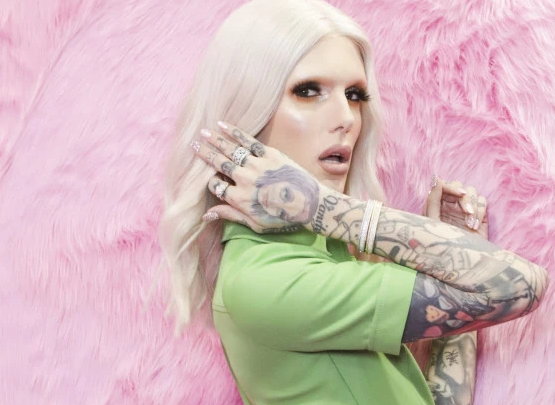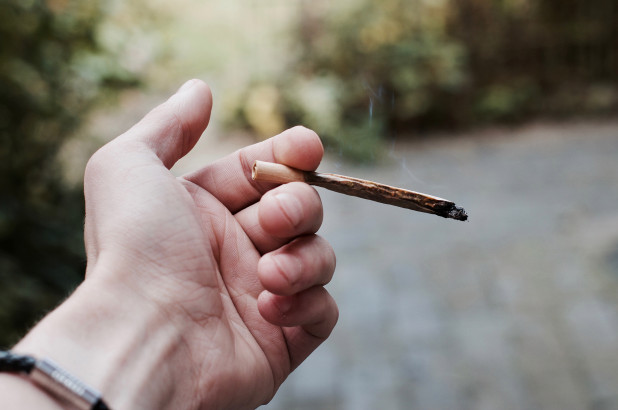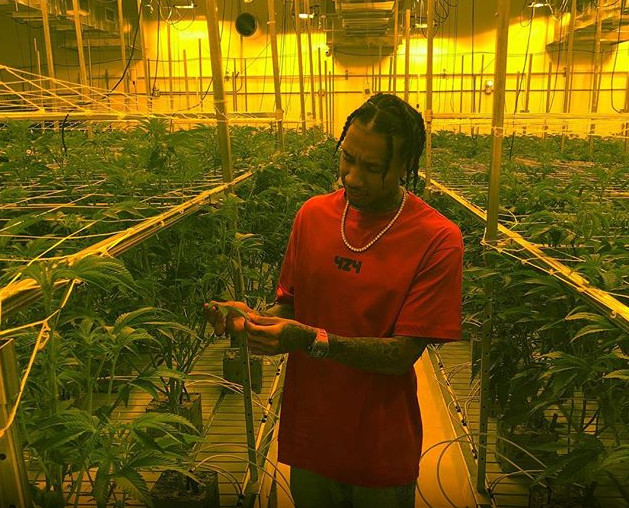The Fighters is a series that spotlights people on the front lines of shifting power. These are the activists and agita
Valued at more than $20 billion nationwide, cannabis is the nation’s fastest-growing industry — and one of its most lucrative. Perhaps not surprisingly, its corporate beneficiaries are largely white, wealthy, and male, while those who continue to suffer from its criminalization are largely low-income people of color. Even as legalization in some states has contributed to the industry’s growth, marijuana arrests in nearly half the country shot up between 2014 and 2016, almost entirely among black and Latino people.
In Oakland, a group of cannabis entrepreneurs called Supernova Women is working to address these inequalities. Founded in 2015 by three of women of color, the organization’s goal is to not only increase the number of people of color in the cannabis industry, but also to make the industry most accessible to those who were most adversely affected by the War on Drugs. Another group, Asian Americans for Cannabis Education, is working alongside Supernova Women to make the industry more accessible to the state’s Asian community.
We caught up with Supernova co-founder and entrepreneur Amber Senter and AACE founder Ophelia Chong — who also runs a cannabis stock image company called Stock Pot Images — to talk about their work, the cannabis industry, and why women of color have largely been excluded from these conversations until recently.
Amber: how and why did you decide to start Supernova Women?
Amber Senter: Supernova was founded in November 2015 by Sunshine Lencho, Nina Parks, and myself. We founded the organization after being in the cannabis industry and seeing that there weren’t enough people of color represented. We were going to lose out if we didn’t figure out something.
Nina and I met at a VIP reception for a conference. We were the only women of color there. Nina and I became friends after that — we would hang out by Lake Merritt and talk about cannabis and being in the industry. At the time, Nina had a delivery service, and I was trying to launch an edibles company. We’d just meet up and smoke by the lake.
A few months later, I met Sunshine at a Women Grow event. There were three women of color there — Sunshine and me being two of them. I got Sunshine a job at a consulting firm I was working at, and we were writing winning applications for very large — and very white — groups in Maryland. Black and brown people were not applying for these licenses, and they were not winning these licenses, and we felt like that was a really big issue.
We founded Supernova, and [started] putting on free programming. We put on our first event two months after we founded the organization, in January 2016. The first panel was about laws. The second was a panel of people of color that were working and operating in the industry as shareholders. It was a really successful event. And then we started doing that same programming throughout the Bay Area and throughout California, and then we did one in Boston. We wanted to take this type of programming national.
We did a workshop here in Oakland, and we’ve been doing networking events. We have a coffee and cannabis event that we do bimonthly. We just try to continue the conversation about equity in cannabis and how to navigate the industry as people of color.
Why aren’t women of color, and people of color more generally, starting more cannabis businesses?
Amber: There are a number of barriers of entry for people of color to participate — really, in anything, but especially cannabis. Money is the number one problem. We don’t have access to capital; we don’t have generational wealth. We come from low-income communities with high arrest rates and high poverty rates. Unless you have a bunch of rich friends or have a bunch of money piled up, [you usually can’t start a cannabis business.] You cannot go out and get a federal loan. You cannot get a Small Business Administration loan. All these traditional ways of starting a business don’t apply to cannabis, so funding is a huge problem.
Also the technical piece: Knowing how to navigate these complexities of regulation in the cannabis industry is challenging. Not only do people not have the money to get in, but they might not have all of the expertise that it takes to do this. So how do you expect these people to be able to capitalize from these programs?
<supernova women>
I read in The Root that Supernova was really instrumental in getting Oakland’s equity permit program, which helps people with past marijuana convictions start cannabis businesses, rolling.
Amber: We worked a lot with the city at identifying ways in which the equity program could be successful, and making suggestions in different aspects of the program. The equity program is a way of including people — communities — that have been disproportionately affected by the war on drugs.
The city identified certain police beats within Oakland that had higher arrest rates for cannabis than others over a certain period of time. If you lived in one of those police beats, or you have a cannabis conviction that originates in Oakland, you’re allowed to start in this equity program that they’ve got set up.
Oakland is definitely a leader in allowing people who have had cannabis felonies to participate in the regulated market. There’s only 30 percent of California, right now, that has some kind of a cannabis market. Seventy percent of the state does not allow for cannabis activity within their counties. Cannabis still has a long way to go, even if a state like California.
Ophelia — How did you decide to start Stock Pot Images?
Ophelia Chong: My sister, she’s seriously ill, and she uses cannabis. About three years ago, when she first started doing this, I looked at her and thought, Man, you know, she’s such a stoner. And then I realized that I was stereotyping her. And that’s how it started. I started Stock Pot to educate myself. The benefit was that I could bring this product to market and educate other people as well.
Stock Pot has a really wide array of images. It goes way beyond your stereotypical Tumblr photo of a young woman in HUF socks smoking weed.
Ophelia: I’ve worked in photography for about three decades, and was also the creative director of another stock agency. For stock photography, you need a wide array [of images]. It’s not just the plant — it’s people, farms, science labs, food, lifestyle. Cannabis encompasses everything.
What about Asian Americans for Cannabis Education?
Ophelia: Whereas Stock Pot is to educate everybody, Asian Americans for Cannabis Education was to help destigmatize cannabis in my own community. In my community, we had a lot of misconceptions as to what cannabis is or is about. Right now, Asian Americans probably are about 2.4 percent of the industry. In population, we’re about maybe 5 to 6 percent. So yes, it is low, but our participation kind of rides along the same lines as the population in the state.
How did you get involved with Supernova Women?
Ophelia: I met [Amber] three years ago, in March. Back then, there weren’t that many women of color in cannabis. So every time you’d see one, you’d go wow, who are you?! We find each other, women of color.
In the years that you’ve been around, have you faced any challenges or hurdles?
Ophelia: The only hurdle I had with Stockpot was that I couldn’t get a bank account. I had to go to two banks before I got a bank account. They didn’t understand ancillary. I kept saying, “I don’t touch the plant, I don’t touch the plant. I just have pictures of the plant!”
Amber: A lot of people want us to be everywhere, and that’s really hard because we don’t really operate with a profit model. We don’t have a lot of money. All of our programmings is run by us on a volunteer basis. But still, a lot of people want us to scale, come to their cities, help them do this. But really what we’re trying to do is empower people to do it in their own cities. We’re trying teach people to do this where they live.
Credit: heoutline.com













